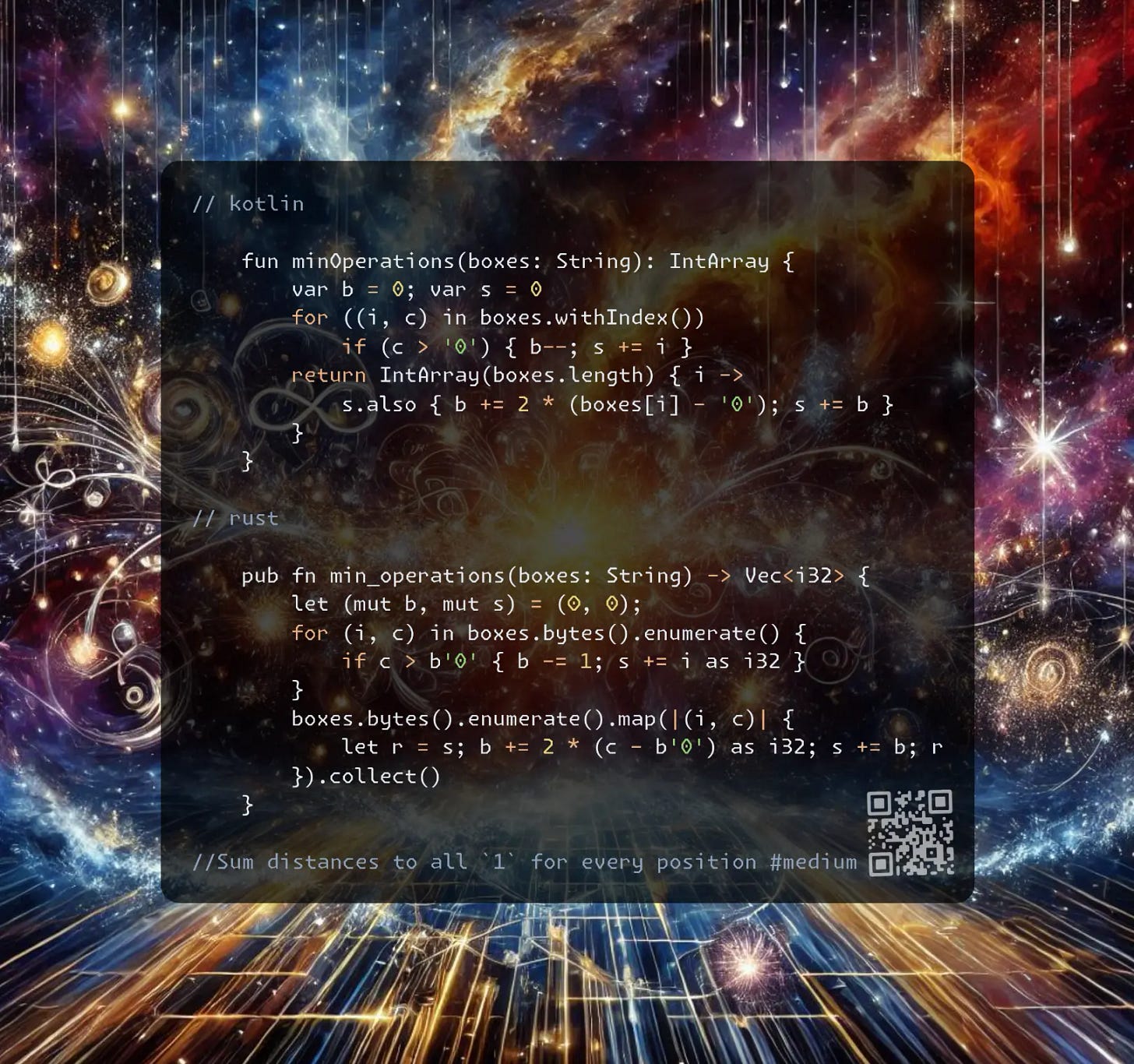# 06.01.2025 [1769. Minimum Number of Operations to Move All Balls to Each Box]
Sum distances to all `1` for every position #medium #prefix_sum
06.01.2025
1769. Minimum Number of Operations to Move All Balls to Each Box medium blog post substack youtube deep-dive
Join me on Telegram
Problem TLDR
Sum distances to all
1for every position #medium #prefix_sum
Intuition
Let's observe an example:
// 012345
// 001011
// * 2 45 2+4+5=11, right = 3
// *1 34 11-3=8, right = 3
// * 23 8-3=5 , left = 1, right = 2
// *12 5-2=3, +1=4
// * 3-2=1, +2=3, right = 1, left = 2
// * 1-1, 2+2=4
the minimum operations of moving all
1to positioniis the sum of the distanceswe can reuse the previous position result: all
1's to the right became closer, and all1's to the left increase distance, so we dosum[i + 1] = sum[i] - right_ones + left_ones
Approach
we don't need a separate variable for the
leftandright, as we always operate on thebalance = left - rightcareful with the operations order
single-pass is impossible, as we should know the balance on the first position already
Complexity
Time complexity: $$O(n)$$
Space complexity: $$O(1)$$
Code
fun minOperations(boxes: String): IntArray {
var b = 0; var s = 0
for ((i, c) in boxes.withIndex())
if (c > '0') { b--; s += i }
return IntArray(boxes.length) { i ->
s.also { b += 2 * (boxes[i] - '0'); s += b }
}
}
pub fn min_operations(boxes: String) -> Vec<i32> {
let (mut b, mut s) = (0, 0);
for (i, c) in boxes.bytes().enumerate() {
if c > b'0' { b -= 1; s += i as i32 }
}
boxes.bytes().enumerate().map(|(i, c)| {
let r = s; b += 2 * (c - b'0') as i32; s += b; r
}).collect()
}
vector<int> minOperations(string boxes) {
int b = 0, s = 0; vector<int> r(boxes.size());
for (int i = 0; i < boxes.size(); ++i)
if (boxes[i] > '0') b--, s += i;
for (int i = 0; i < boxes.size(); ++i)
r[i] = s, b += 2 * (boxes[i] - '0'), s += b;
return r;
}

